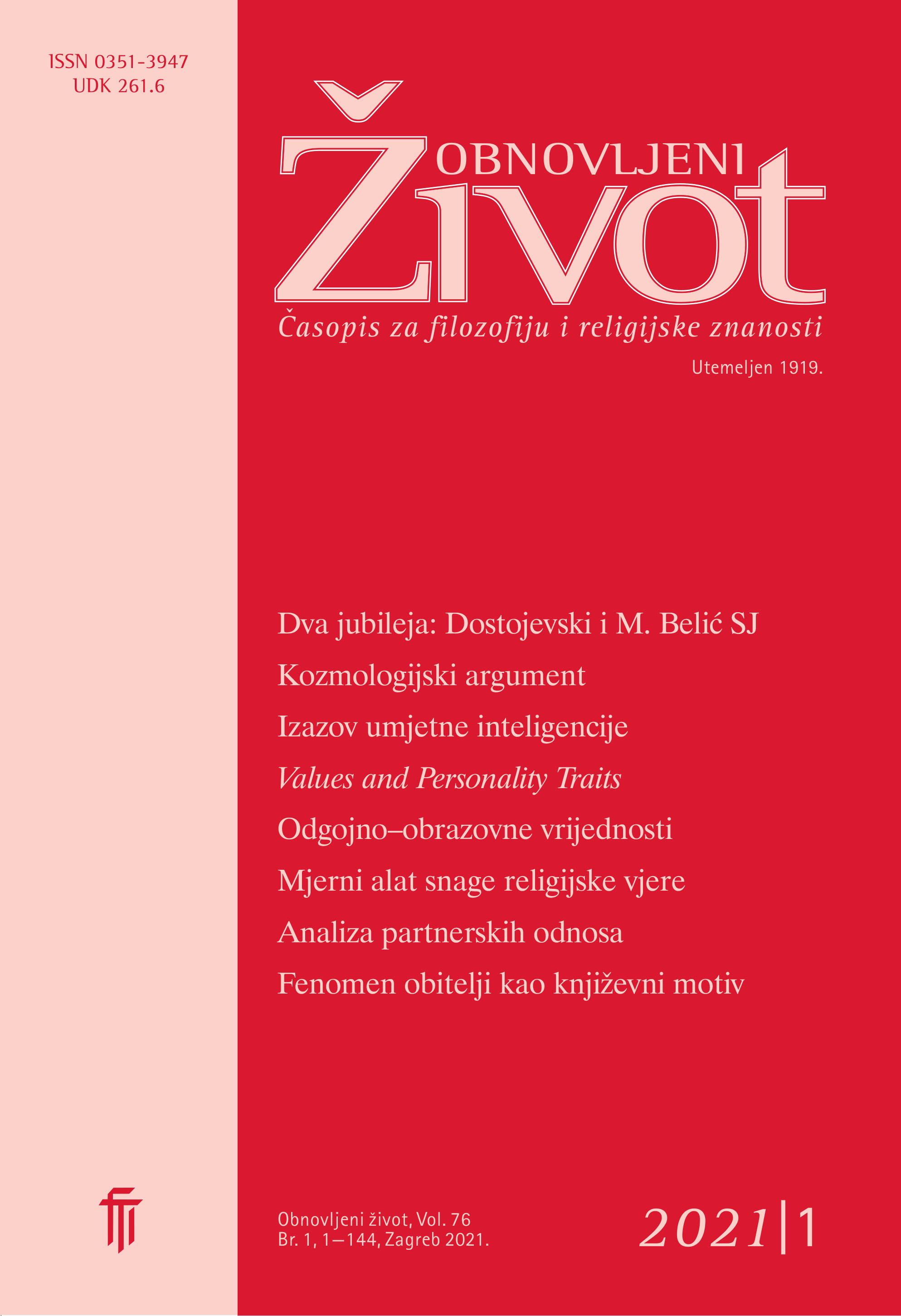Validation of the Santa Clara Strength of Religious Faith Questionnaire
Keywords:
religiosity, faith, measuring, anta Clara Strength of Religious Faith QuestionnaireAbstract
The purpose of this study was to examine the psychometric properties of the Croatian version of the Santa Clara Strength of Religious Faith Questionnaire. Measuring religiosity should include a theoretical basis, psychometric properties of the measuring instruments, representative sampling, and social and cultural sensitivity. The diversity of definitions and instruments required for measuring religiosity pose the greatest difficulties in its research. The theoretically predicted single–factor structure of the SCSRFQ has been confirmed herein. Analyses of the primary components reveal a profound dominance of a core dimension, which expounds nearly 70% of the variance. Dimensional stability proves an identical factor structure confirmed through sub–samples based on gender and occupation, as well as congruence coefficients between factor structures obtained in various sub–samples. Convergent and divergent validity confirm a major correlation with daily spiritual experiences and self–reports of religiosity. This is combined with a feeling of fulfilment with one’s spirituality and — based on past empirical knowledge — a positive association with subjective well–being. The results acquired indicate that the Croatian version of the Santa Clara Strength of Religious Faith Questionnaire elicits highly positive psychometric properties, which opens the possibility for its use and application.
Downloads
Published
Issue
Section
License
Jednom prihvaćeni članak obvezuje autora da ga ne smije objaviti drugdje bez dozvole uredništva, a i tada samo uz bilješku da je objavljen prvi put u Obnovljenom životu. Uredništvo će obavijestiti autora o prihvaćanju ili neprihvaćanju članka za objavljivanje.
Članci objavljeni u časopisu se, uz prikladno navođenje izvora, smiju besplatno koristiti u obrazovne i druge nekomercijalne svrhe.


